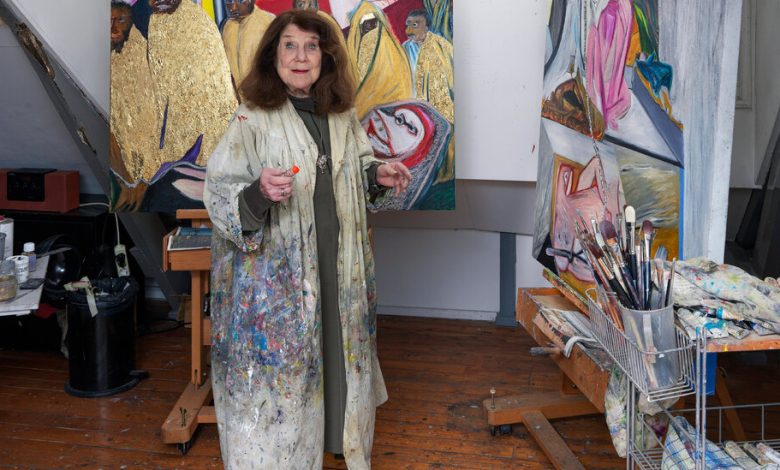Jacqueline de Jong, Rediscovered Avant-Garde Artist, Dies at 85

Jacqueline de Jong, a Dutch artist who was at the forefront of a 1960s avant-garde movement that critiqued postwar capitalism, and who enjoyed a career resurgence in her last decade, died on June 29 in Amsterdam. She was 85.
Her brother, Philip de Jong, said her death, in a hospital, was caused by liver cancer.
Ms. de Jong was associated with the so-called Situationist International movement, which combined elements of Dada, Surrealism and Marxism in its condemnation of capitalism. She founded and edited The Situationist Times, a multidisciplinary journal, published from 1962 to 1967, that included essays, artwork and groundbreaking graphic design.
For many years she was associated and romantically involved with Asger Jorn, a Danish painter and writer who was 25 years her senior and married.
But her artistic career was entirely independent of him, and, in spite of scant recognition over a long period, she continued to explore her unique artistic style for the rest of her life. She never settled on a single style, but bounced among Abstract Expressionism, Pop Art and New Figuration, a movement that rejected abstraction.
Ms. de Jong had lived and worked in Amsterdam since the 1970s, and since the 1990s had kept a country house and studio in Bouan, in southwestern France. She was a painter, sculptor and engraver who also worked in unconventional media. One recent series of works was inspired by sprouting potatoes she found in her cellar in France; she depicted them in paintings and also made them into objects d’art and jewelry, coating them in 18-carat gold.